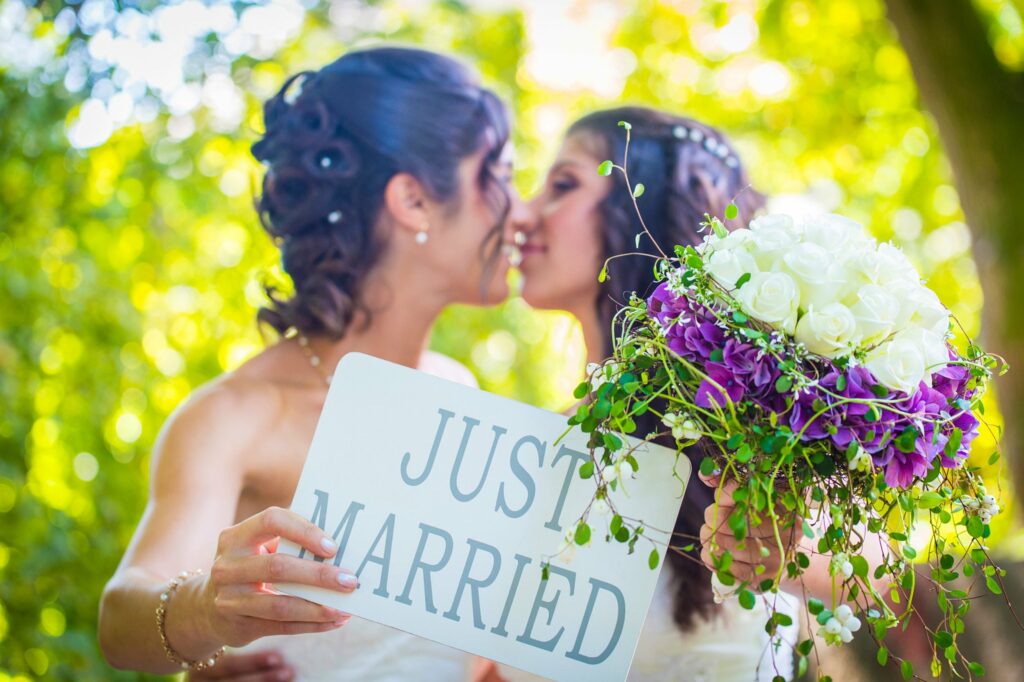Marriage is a sacred bond that requires commitment, understanding, and effort from both partners. While marriages come in various forms, it is essential to recognize and address the unique challenges faced by individuals in bisexual marriages. This article aims to explore the significance of bisexual marriage counseling, the benefits it offers, and a guide in finding the right counselor.
Contents
Understanding Bisexual Marriage

Bisexual marriage refers to a marital union between two individuals who identify as bisexual, meaning they experience romantic and/or sexual attraction to both males and females. Bisexual individuals can form loving and committed relationships with people of either gender.
It is important to note that bisexual marriage is not fundamentally different from any other form of marriage, as the legal and social aspects generally remain the same. The legal recognition and rights granted to bisexual couples in marriage depend on the laws and regulations of the specific country or region in which they reside.
In many countries, same-sex marriage has been legalized, granting same-sex couples, including those who are bisexual, the same legal rights and protections as opposite-sex couples. These rights typically include aspects such as tax benefits, inheritance rights, healthcare decisions, child custody, and immigration benefits, among others.
Challenges Faced by Bisexual Couples
Bisexual couples can face unique challenges due to the specific dynamics of their relationships and the biases and misconceptions surrounding bisexuality. Here are some common challenges faced by bisexual couples:
- Biphobia and Bisexual Erasure: Bisexual individuals often encounter biphobia, which refers to negative attitudes, stereotypes, and prejudices specifically directed toward bisexuality. Bisexual erasure is another issue, where the existence and validity of bisexuality are denied or ignored. These attitudes can affect how bisexuality is perceived within the relationship and by others.
- Lack of Visibility and Acceptance: Bisexuality is sometimes misunderstood or overlooked, leading to a lack of acceptance and visibility within both the LGBTQ+ community and society at large. This can make it more challenging for bisexual couples to find support networks and resources tailored to their specific needs.
- Invisibility in Same-Sex Relationships: Bisexual individuals in same-sex relationships may face erasure or skepticism about their bisexuality, as their relationship is perceived as confirming a gay or lesbian identity. This can lead to feelings of invalidation and exclusion within the LGBTQ+ community.
- Insecurity and Jealousy: In any relationship, insecurities and jealousy can arise. For bisexual individuals, there may be concerns about their partner’s ability to meet their needs for both genders. Misconceptions about bisexuality, such as the assumption that bisexual individuals are more likely to cheat or be promiscuous, can exacerbate these insecurities.
- Misunderstandings and Stereotypes: Bisexual individuals may face stereotypes that they are confused, experimenting, or unable to commit. These stereotypes can be harmful and undermine the legitimacy of their relationships. Clear communication and education about bisexuality can help dispel these misconceptions.
The Importance of Bisexual Marriage Counseling

Bisexual marriage counseling, like any form of couples counseling, plays a crucial role in supporting and strengthening the relationships of bisexual couples. Here are some key reasons why bisexual marriage counseling is important:
- Validation of Bisexual Identities: Bisexual individuals may face unique challenges and experiences that are specific to their sexual orientation. Bisexual marriage counseling provides a safe and non-judgmental space for couples to explore their identities, discuss their feelings, and have their experiences validated. This validation can foster a sense of acceptance and understanding within the relationship.
- Communication and Conflict Resolution: Effective communication and conflict resolution skills are vital in any relationship. Bisexual marriage counseling can help couples develop these skills, improving their ability to express their needs, listen to each other, and find mutually satisfactory resolutions. The counselor can facilitate open and respectful dialogue, helping to navigate any misunderstandings or conflicts that may arise.
- Addressing Biphobia and Bisexual Erasure: Biphobia and bisexual erasure can have a significant impact on the well-being of bisexual individuals and their relationships. Bisexual marriage counseling can provide a supportive environment to address these challenges, discuss the impact they have on the relationship, and develop strategies to counteract them. Counselors can help couples challenge negative beliefs and work towards creating an affirming and validating partnership.
- Managing Insecurities and Jealousy: Insecurities and jealousy can arise in any relationship, and bisexual couples may face specific concerns related to bisexuality, such as fears of being unable to fulfill their partner’s needs for both genders. Bisexual marriage counseling can help couples explore these feelings, identify their root causes, and develop strategies to manage them in healthy and constructive ways. This can strengthen trust and foster a more secure and supportive bond.
Finding the Right Bisexual Marriage Counselor
Finding the right bisexual marriage counselor is an important step in ensuring that you and your partner receive the support and guidance you need. Here are some suggestions to help you in your search:
- Seek LGBTQ+ Affirmative Counselors: Look for counselors who specialize in working with LGBTQ+ individuals and couples. These counselors will have a deeper understanding of the unique challenges faced by bisexual individuals and can provide a more affirming and inclusive environment.
- Research and Referrals: Start by researching counselors in your area who have experience or expertise in working with bisexual and LGBTQ+ clients. You can search online directories, read reviews, or ask for referrals from trusted sources, such as LGBTQ+ organizations, friends, or healthcare professionals.
- Interview Potential Counselors: Consider scheduling initial consultations or phone interviews with potential counselors to get a sense of their approach and whether they are a good fit for you and your partner. Ask about their experience working with bisexual individuals and couples, their familiarity with bisexuality-related issues, and their overall approach to counseling.
- Affirming and Inclusive Language: Pay attention to the language and attitudes used by the counselor during your interactions. A bisexual marriage counselor should demonstrate a non-judgmental and inclusive approach, respecting and validating your identities and experiences.
- Cultural Competence: Consider the cultural factors that may be relevant to your relationship. If you and your partner belong to specific cultural or ethnic communities, it can be helpful to find a counselor who understands and respects the nuances and challenges faced by bisexual individuals within those communities.
The Process of Bisexual Marriage Counseling
Bisexual marriage counseling typically involves several stages designed to address the specific needs of the couple.
Initial Assessment and Goal Setting
In the first stage, the counselor conducts an initial assessment to understand the couple’s unique challenges, goals, and expectations. This assessment provides a foundation for developing a personalized counseling plan.
Individual and Couples Sessions
Bisexual marriage counseling involves a combination of individual and couples sessions. Individual sessions allow each partner to explore their thoughts, emotions, and concerns independently, while couples’ sessions focus on improving communication, conflict resolution, and fostering emotional connection.
Developing Coping Strategies
Counseling equips couples with coping strategies to navigate challenges effectively. These strategies may include stress management techniques, enhancing problem-solving skills, and exploring healthy ways to express emotions within the marriage.
Continuous Growth and Maintenance
Bisexual marriage counseling is an ongoing process. Even after achieving significant progress, periodic check-ins with the counselor can help couples maintain a healthy relationship, address new challenges, and continue their growth journey.
Overcoming Stigma and Seeking Support

Overcoming stigma and seeking support as a bisexual individual or couple is a significant step towards personal growth, well-being, and building a strong support network. Here are some suggestions to help you navigate this process:
- Educate Yourself: Learn about bisexuality and the experiences of bisexual individuals. Understanding the diversity of bisexuality and challenging misconceptions can help you develop a more positive self-image and address any internalized stigma you may have.
- Reach Out to LGBTQ+ Communities: Connect with LGBTQ+ organizations, groups, or online communities that are inclusive and supportive of bisexual individuals. These spaces can provide you with a sense of belonging, understanding, and shared experiences.
- Seek Affirming Professionals: When seeking support, whether it’s therapy, counseling, or other services, prioritize finding professionals who are knowledgeable about and affirming bisexuality. They can provide a safe and validating space to discuss your experiences and offer guidance.
- Share with Trusted Individuals: Identify trusted friends, family members, or allies who can provide support and understanding. Sharing your experiences and feelings with them can help you combat isolation and develop a strong support system.
- Online Resources: Utilize online resources such as blogs, forums, or support groups dedicated to bisexuality. These platforms can offer valuable information, advice, and connections with others who have similar experiences.
Conclusion
Bisexual marriage counseling offers a valuable resource for couples navigating the unique challenges of a bisexual marriage. By creating a safe space, addressing specific hurdles, and providing effective strategies, counseling helps couples build a strong foundation based on understanding, communication, and trust. Embracing the benefits of counseling and seeking the right therapist can lead to a healthier, happier, and more fulfilling marriage.
Life may sometimes be challenging for bisexuals, but Online Bisexual Counseling can help. Get experienced LGBTQ therapists at PrideMantra: Book a trial LGBTQ therapy session.


